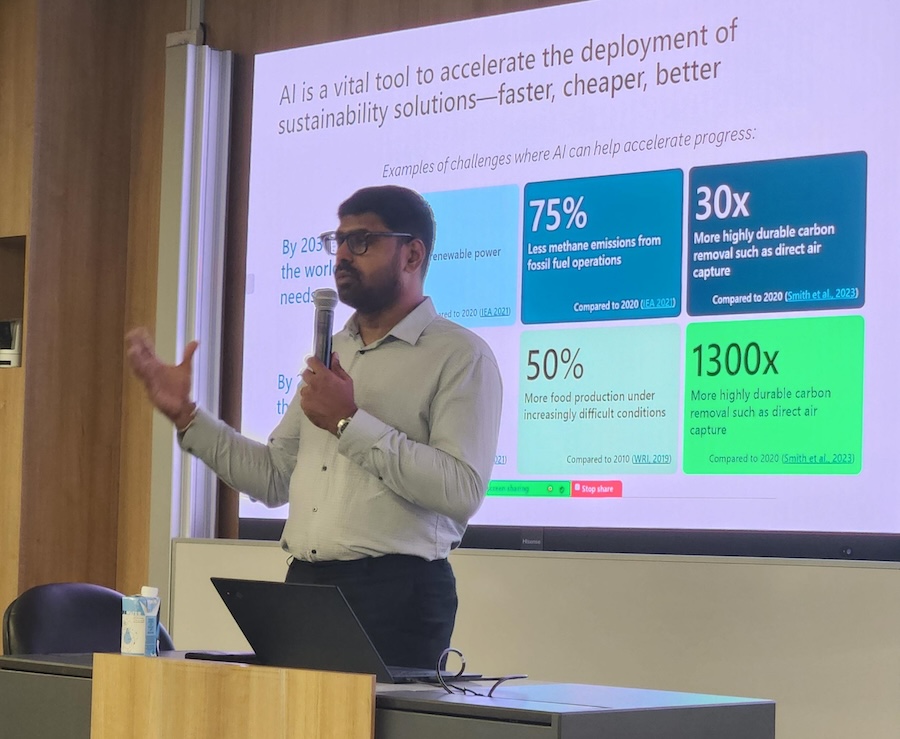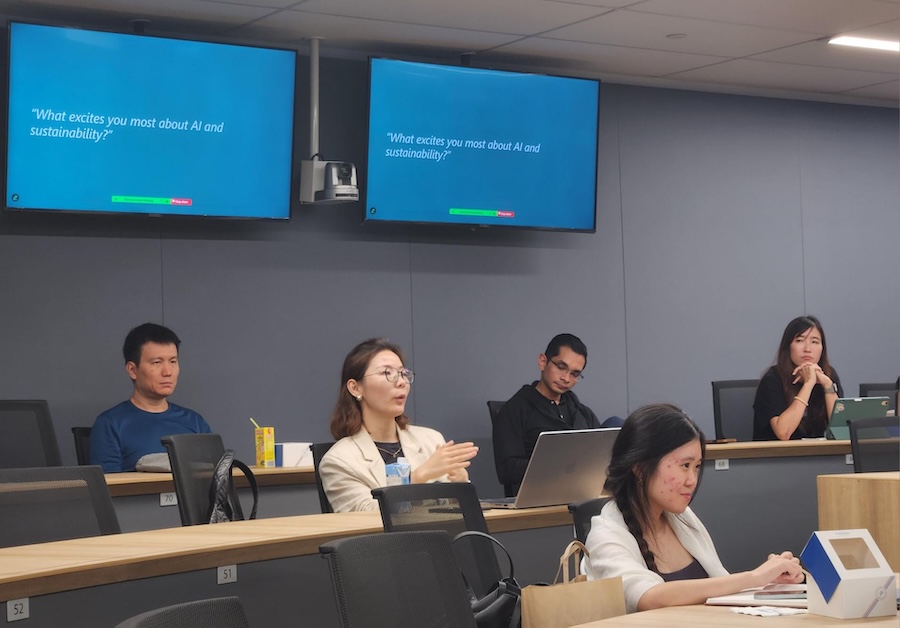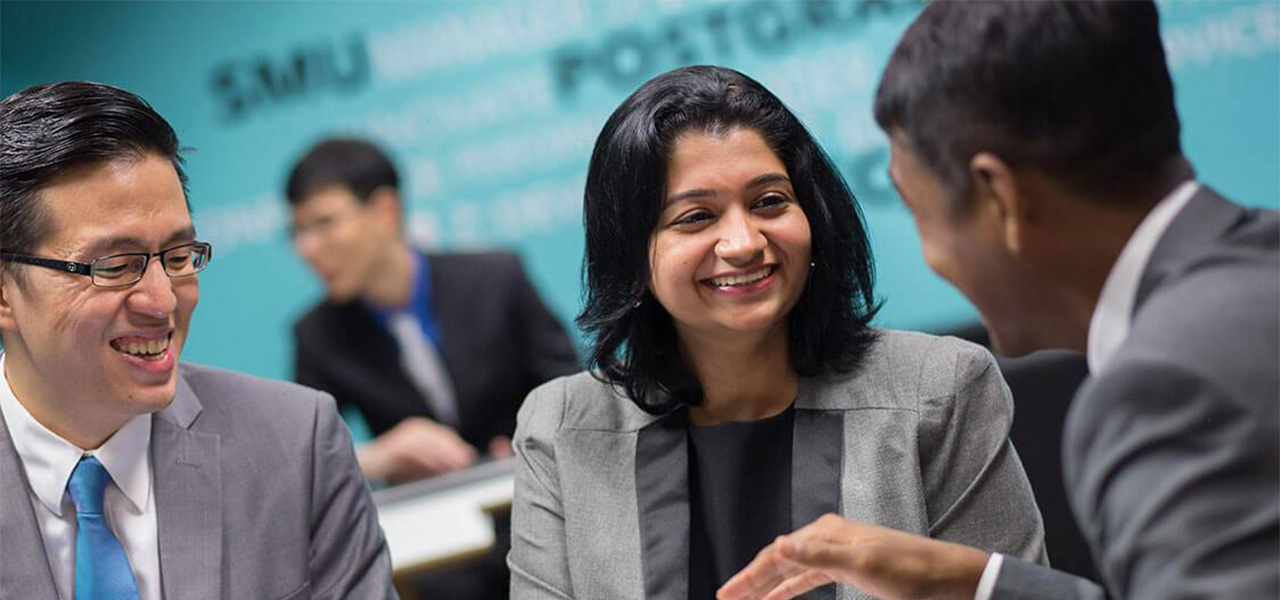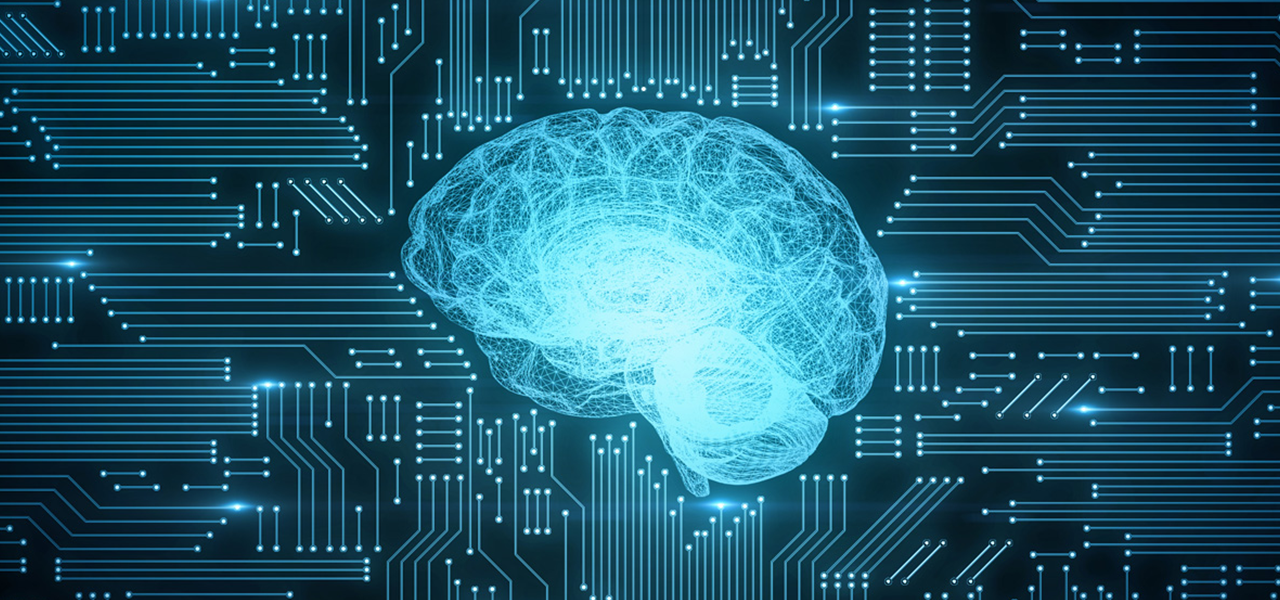As artificial intelligence (AI) becomes increasingly embedded in our daily lives, its impact on sustainability has emerged as one of the most pressing questions of our time. This evolving relationship was brought to life in a recent Master of Sustainability (MST) sample class at Singapore Management University (SMU), led by Mr Kavickumar Muruganathan, Director of Environmental, Social, and Governance (ESG) Policy and Planning at Microsoft (APAC).
Designed for aspiring changemakers, the class on AI and Sustainable Development examined both the opportunities and trade-offs of applying AI to pressing global challenges. Drawing from industry, policy, and planetary health, the session highlighted SMU’s interdisciplinary and applied approach to sustainability education.
AI as a driver of efficiency and sustainability
The rapid adoption of AI across industries is often linked to its ability to optimise processes and drive efficiency. Yet, as Mr Muruganathan explained, this comes with a cost.
“AI is undoubtedly energy-hungry, so it’s essential that we manage renewable power. The real challenge lies in making AI both a tool and a target of sustainable innovation.”
Real-world examples underscored this tension:
- In agriculture, AI is strengthening crop resilience.
- In the energy sector, it is helping identify new renewable sources.
- In healthcare, it is accelerating drug discovery.

However, these applications rely on vast quantities of data and significant computing power. Mr Muruganathan noted that while the energy footprint of an AI query may exceed that of a simple web search, the emissions impact depends on how that energy is sourced.
“If the AI system is powered by renewable energy, the emissions footprint can be significantly reduced,” he said.
At the same time, AI’s predictive capabilities, such as in weather forecasting and disaster preparedness, are reshaping climate resilience strategies. Beyond providing early warnings, these systems help businesses in insurance, shipping, and infrastructure assess risk and adapt to extreme weather patterns more efficiently.
The trade-offs and ethical questions
While AI presents promising applications for sustainability, the sample class also explored its limitations and unintended effects. One recurring theme was the ethical implications of AI adoption—from misinformation and data misuse to job displacement and algorithmic bias.
Citing a case study of a Polish radio station that experimented with AI-generated presenters, Mr Muruganathan warned against the notion that AI can fully replicate human judgement. “Some roles are best left to people—not just for ethical reasons, but because authenticity and social trust are at stake,” he said.
When students raised questions about AI’s role in job displacement, Mr Muruganathan acknowledged that lower-value roles may be displaced by automation. At the same time, he emphasised AI’s potential in creating new, higher-skilled positions, particularly in emerging sectors such as nuclear energy, vertical farming, and sustainable data infrastructure. “The real issue is not only job loss but also investing in reskilling and upskilling to ensure a smooth transition,” he noted.
The class discussion also highlighted how different sectors—healthcare, agriculture, defence, and companionship—are grappling with questions of AI’s appropriate role.
“Did you know that close to around 70,000 people look for AI partners online each year?” Mr Muruganathan asked the room, prompting broader reflections on the changing nature of human relationships in the digital age.

A holistic learning experience on sustainability
The class offered participants a preview of how the MST curriculum engages deeply with these questions. Beyond exploring AI applications, students learn about:
- Energy and water use in AI systems.
- The carbon footprint of global data infrastructure.
- The role of financial institutions in shaping sustainable AI adoption.
- Social equity, reskilling, and change management in the age of automation.
“Besides delving into how AI works, we’ll also examine what it takes to build and power these systems with AI—land, energy, connectivity—and how they fit into the broader conversation on sustainability,” shared Mr Muruganathan.
Join the conversation on the future of sustainability
This sample class provided a glimpse into AI and Sustainable Development, one of the courses in SMU’s Master of Sustainability (MST) programme. The programme equips graduates with the expertise to lead in the green economy and to navigate the complex interplay between technology, policy, and sustainable growth.
Discover how you can be part of this transformative journey. Explore SMU’s Master of Sustainability today.





